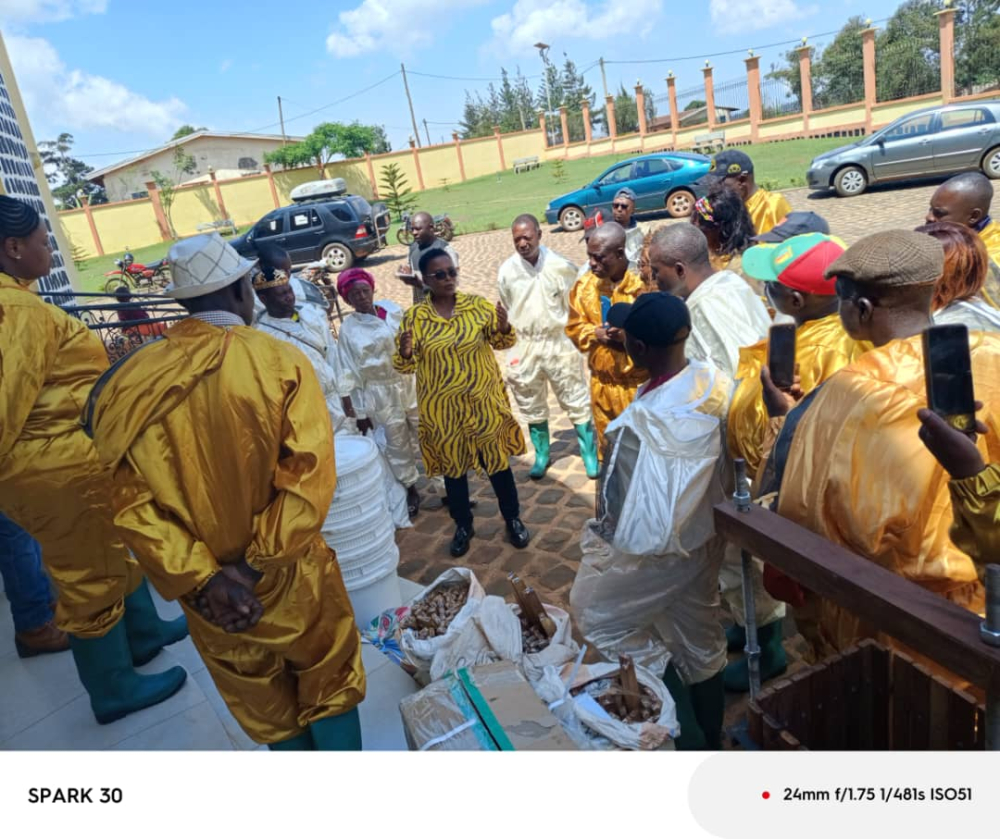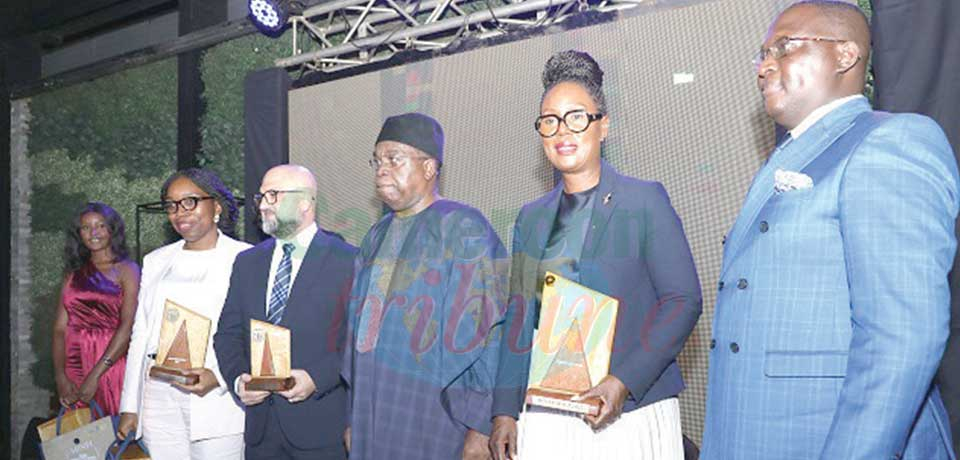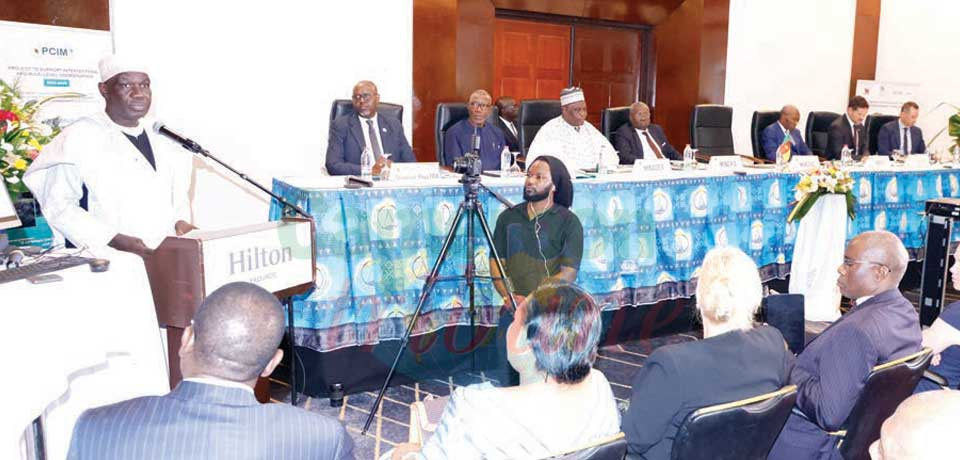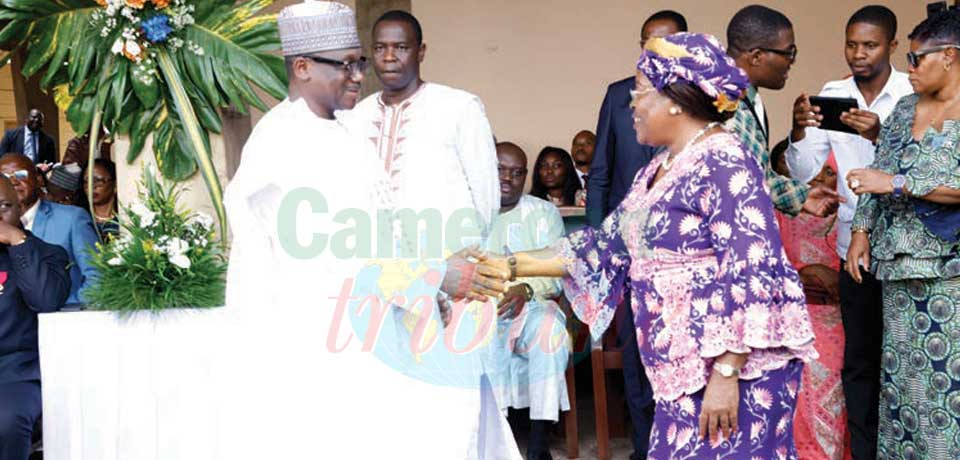Improving Livelihoods, Bettering Landscape Management
- Par Kimeng Hilton
- 30 Mar 2025 17:22
- 0 Likes

Rainforest Alliance recently offered additional bee farming equipment to farmers in the West Region as part of the Community-based Landscape Management, COBALAM project.
They are now set to make a significant difference in their lives. By augmenting their incomes. And improving the management of their environment. Through sustainable bee farming practices. Which promotes the planting of nitrogen-fixing trees – a great source of soil enrichment, conservation and the production of flowers for bee making. Because as are great pollinators, bees enhance biodiversity conservation. That was the goal set by those who conceived the project. And it is well on the rails – as envisaged.
Equipment Distribution
Officials of the international charity, Rainforest Alliance, recently distributed huge consignments of bee farming material to trained producers in the West Region of Cameroon. The event held on March 26, 2025 in Fongo-Tongo in Menoua Division for farmers from Bamboutos mountain range landscape. And on March 28, 2025 in Bangou for farmers from the Bana-Bangante-Bangou mountain range.
COBALAM Project
“Removing Barriers to Biodiversity Conservation, Land Restoration and Sustainable Forest Management through Community-based Landscape Management,” COBALAM project is implemented by Rainforest Alliance in partnership with the Ministry of the Environment, Nature Protection and Sustainable Development of Cameroon, MINEPDED and the United Nations Environment Programme, UN Environment. The project aims to promote biodiversity conservation and support sustainable landscape management in the Western Highlands and the Southern Region of Cameroon.
High Conservation Value Forests
Funded by the Global Environment Facility, GEF, the project adopts an integrated landscape management approach by placing the preservation of High Conservation Value Forests (HCVF) at the heart of its interventions. While integrating surrounding forests and agricultural areas into a sustainable management dynamic, led by local communities. COBALAM is therefore part of an approach aimed at reconciling the conservation of biodiversity, sustainable economic development and the management of natural resources.
Quality Honey, Quality Clients
“We worked with bee farmers and told them that to ensure quality honey, they must maintain a clean environment and proper hygiene. Such honey will easily attract clients. We offered the farmers bee hives and material to protect themselves against bee stings. We also offered them honey harvesting, preservation and processing equipment.
“Their training included lessons and workshops on bee hive production, the choice of site for placing bee hives, how to place the bee hive, maintenance of bee hive, honey processing, honey preservation, the use of bee harvesting protective gear…,” said Mrs. Annie Florence Youbissi, a Tropical Agricultural Engineer and bee farming consultant with COBALAM project.
Soil Improvement, Preservation
“Farmers must avoid bush fires that destroy bees and places polluted by chemical products because they are likely to contaminate honey. Instead, they should use bio pesticides and fertilizers which are friendly to the environment. Also, the planting of nitrogen-fixing trees is encouraged. These trees not only enrich the soil and protect against soil erosion, but offer good flowers for honey production.
Sourcing Income, Boosting Conservation
“Rainforest Alliance had as objective to protect the Bamboutos and Bana-Bangante-Bangou mountain range landscapes. Bee farming was chosen as a project because of the role pollination plays. It is only possible if farmers plant more trees to help in biodiversity conservation. The training and material offered the farmers are to enable them to be competitive in the market. Moreover, bee farming is a good source of income-generation,” Mrs. Youbissi asserted.
Better Farmer Organisation
“For the future, we plan to mobilise bee farmers into cooperatives to sell their products at better prices and also share experiences. In this regard, a social media WhatsApp group has been created where bee farmers share information and experiences,” she disclosed.
According to Jacques Waouo, the Coordinator of Rainforest Alliance in the Western Highlands of Cameroon, COBALAM project saw the distribution of the first set of bee farming equipment in 2022. The project began in 2020 on the Bamboutos mountain range landscape, then on the Bana-Bangante-Bangou mountain range landscape - all in the West Region.
Reconciling Man And Environment
“We opted for bee farming because it enables project beneficiaries to augment their incomes, and it is a sustainable form of farming. The more bees there are in the two landscapes, the better for crop productivity because of pollination. It is about reconciling man with his environment to have best crop and bee farming practices. In this light, the farmers were trained in bee farming best practices to improve production and livelihoods, and assure sustainable management of the two landscapes,” Waouo added.
Problem Assessment
As part of COBALAM project activities, a thorough assessment of beekeeping practices was conducted, re...
Cet article complet est réservé aux abonnés
Déjà abonné ? Identifiez-vous >
Accédez en illimité à Cameroon Tribune Digital à partir de 26250 FCFA
Je M'abonne1 minute suffit pour vous abonner à Cameroon Tribune Digital !
- Votre numéro spécial cameroon-tribune en version numérique
- Des encarts
- Des appels d'offres exclusives
- D'avant-première (accès 24h avant la publication)
- Des éditions consultables sur tous supports (smartphone, tablettes, PC)














Commentaires